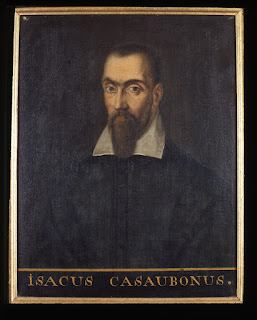'The Illustrious Grotius, the Learned Casaubon': the cosmopolitan vision of Restoration Anglicanism

In his 2016 article ' Primitive Christianity revived: religious renewal in Augustan England ', Eamon Duffy pointed to "the new assurance" of Anglicanism at the Restoration that it was the embodiment of the Primitive Church. This can give rise to an interpretation in which the Anglicanism of the' long 18th century' is believed to have viewed itself in 'splendid isolation', haughtily aloof from the other Christian traditions in Europe during this era. There are very good reasons indeed for robustly challenging any such notion. The Laudian and High Church tradition had a vibrant cosmopolitan vision, embracing the Gallicans and Jansenists . 18th century Anglicanism had high praise for the Lutheran churches and exercised a significant care for non-episcopal Protestant churches . Another expression of such cosmopolitanism is found in invocations of leading European eirenic Protestant thinkers and their view of the Church of England. Timothy Puller's 1...




